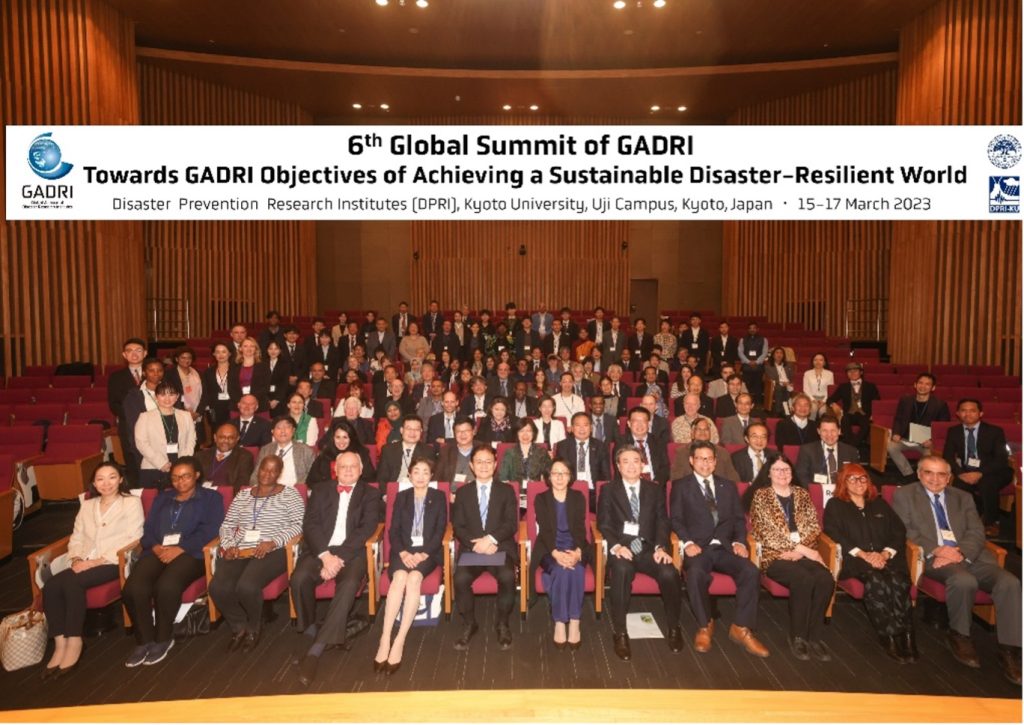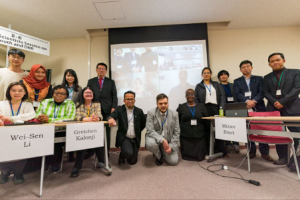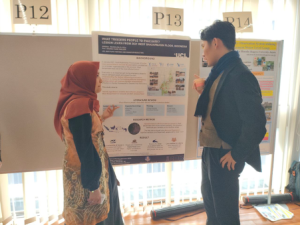Lessons Learned from The 6th Global Summit of Research Institutes for Disaster Risk Reduction
By Khonsa Zulfa, on 24 April 2023
Achieving a Sustainable Disaster-Resilient World: at the 6th Global Summit of Research Institutes for Disaster Risk Reduction (GADRI) this March, 189 Disaster Risk Reduction (DRR) academics and professionals from all over the world gathered at Kyoto University to establish global research networks, develop research roadmaps and plans, build the capacities of research institutes, share information, and engage in collaborative research.
The Role of Youth and Young Professionals in Disaster Risk Reduction
One of the most interesting sessions in the conference is to discuss the role of Youth and Young Professional (YYPs) in DRR. The prolonged worldwide pandemic, intensifying climate change impacts, and cascading risks have taught us that disaster risks should not be treated in silo. Thus, inter-generational collaboration involvement is needed to make substantial change for a more sustainable and resilient society. According to Sendai Framework for Disaster Risk Reduction 2015-2030, Youth are the agent of change and should be given the space and modalities to contribute to Disaster Risk Reduction for Legislation, National Practice, and Educational Curricula.
The panellists and participants discussed that YYPs have roles as data and knowledge producer, broker and synthesizer. First, data and knowledge producers devote themselves solely to capturing natural and social phenomena essential for understanding the landscape of disaster risk. Second, brokers provide challenging services to ensure stakeholders can access the most relevant disaster-related data and knowledge based on their needs. Third, synthesizers access and craft the available disaster-related data and knowledge by consolidating, combining, and providing meaning-making that could inspire or trigger societal changes, such as policy-making or implementation, program ideation, and capacity-building. The session showcases examples from Indonesia, Japan, India, and Colombia that exhibit each of the roles and explore challenges from diverse background including, but not limited to, earth scientists, social scientists, engineers, policy-makers, and emergency management professionals.
Lessons Learned from the Conference
In this conference, I was selected to present my master’s research in the poster session. My research was awarded a GADRI scholarship, which entitled for 15 best abstracts from young scientists and researchers. My research aims to build an Evacuation Decision Model of Flood-Affected People in South Kalimantan Indonesia, which investigates the significant variables behind why people evacuated in the 2021 South Kalimantan floods event. Some suggestions for improvement from the peers are (1) to conduct the same study in different characteristic areas in order to compare the outcomes and (2) to continue studying each significant variable and finding from the results.
Upon the keynote speech on the conference, Mami Mizutori, the Special Representative of the Secretary-General for Disaster Risk Reduction UNDRR, said that DRR policies at the local level are still not doing a good job. Many efforts are needed to strengthen disaster knowledge and awareness at the local level; thus, it can be a driving force for improving DRR policy and community resilience. As a young scientist, I plan to contribute to improving local DRR policies by handing in my master’s dissertation result to South Kalimantan government as it could be a beneficial input for them to enhance flood evacuation strategy.
I would like to acknowledge UCL Institute for Risk and Disaster Reduction for funding my expenses to attend the 6th Global Summit of GADRI, 15-17 March 2023 in Japan. I would like also to appreciate my supervisors Prof Joanna Faure Walker and my personal tutor Prof Patty Kostkova for their guidance on my master’s study.
_________________________________________________________________________________
Khonsa was a Master’s student in UCL IRDR Year 2021/2022. She is now working as Research Assistant at UCL IRDR. Her research is mainly focus on Indonesia disaster, flood, tsunami, evacuation, early warning, and community development.
Get in touch: khonsa.zulfa.21@ucl.ac.uk or Linkedin
 Close
Close




